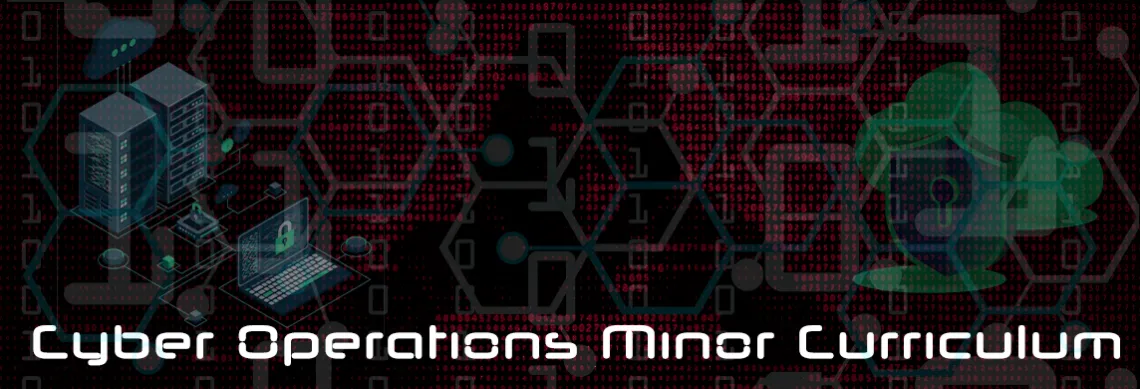Cyber Operations Minor Curriculum

Minor
Strengthen your major degree program with management and leadership skills.
CYBV 301 - Fundamentals of Cybersecurity
CYBV 301 will provide students with an introduction to Fundamentals of Cybersecurity, which will include an introduction to cyber security policy, doctrine, and operational constraints. A broad survey of cybersecurity concepts, tools, technologies and best practices will be presented. Students will use hands-on activities to become familiar with and practice cybersecurity techniques and procedures.
CYBV 326 - Introductory Methods of Network Analysis
Provides a methodology for analyzing networks by examining the network at its infrastructure, network and applications layers; exploring how they transfer data; investigating how network protocols work to enable communication; and probing and analyzing how the lower-level network layers support the upper ones. Students will use hands-on labs and exercises to investigate and analyze network fundamentals.
CYBV 329 - Cyber Ethics
A sustained study of ethical issues that arise in relation to employment in the public and private sectors, including allocation of resources, corporate and social responsibility, relationships, and discrimination. This course is a designated writing emphasis course. A main focus of this course will be on the ethical and legal standards governing information technology. New technology creates ethical challenges for individuals around the globe, and applies to most persons regardless of whether they are employed in the information technology field or a more traditional occupation.
CYBV 385 - Introduction to Cyber Operations
An introduction to the concepts of cyber operations, applying fundamentals of network operations to understanding network attack and defense concepts. Students will recognize common cyber-attacks and the techniques for identifying, detecting and defending against cyber security threats. Students will learn the basics of physical, network and web security as well as standards and laws in cyber security. Legal, ethical, and privacy issues will be discussed. Students will use hands-on labs and exercises to illustrate the workings of information security technologies.
CYBV 400 - Active Cyber Defense
Provides students with an introduction to the policies, techniques, and operational capabilities and limitations of implementing an Active Cyber Defense program. A broad survey of development of defensible network architectures; integration of passive defensive technologies; consumption and production of Cyber Threat Intelligence (CTI) products; implementation of Network Security Monitoring (NSM) and Hunt Teaming (HT) operations; employment of Incident Response (IR) plans; and Threat and Environment Manipulation techniques (TEM) will be presented, and students will use hands-on activities to practice and implement active defense methodologies.
CYBV 435 - Cyber Threat Intelligence
An investigation of threat actors and the techniques they employ to attack networks. Students will research threat capabilities and objectives. Formal ethical hacking methodology including reconnaissance, scanning and enumeration, gaining access, escalation of privilege, maintain access and reporting is examined.

